To All Young People,
In 1933, everything changed for my family and Jewish families like mine. That was the year I was born and it was also the year Adolf Hitler came into power.
We lived in a small town in Germany called Nieder-Ohmen.
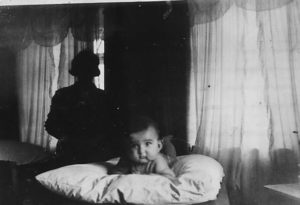

It was a bad time all over Europe and in the United States because 1929 was the start of the Great Depression. Germany not only had the Great Depression to contend with but after World War I the allies asked Germany to pay reparations. They had to pay a huge amount of money for starting World War I. As a result, there was runaway inflation, which caused financial ruin for so many people. Hitler and the Nazi Party blamed everything on the Jews and the communists. That’s how a campaign of hate, fear and discrimination against the Jews, among other groups, started.
Hitler and the Nazis called us cockroaches and vermin.
My father’s farmer friend told him, “Don’t worry, Hitler is an idiot. He’s never going to get elected again. He is terrible. He’ll be gone soon.”
Enter Your Email to Unseal Premium Content
But the German people did not speak up when Hitler started his program of discrimination.
As a result, Germany didn’t have another election. Instead, Hitler became a dictator.
That’s how the Holocaust came to be. And even as a little girl, I could feel the fear around me.
Even as a little girl, I could feel the fear around me.
The Hitler Youth used to walk down the street at these weekly meetings. They would march in their big boots and they would sing these military songs. If they saw lights on in a Jewish house, they would throw stones at the window. My parents would turn out the lights. In our dining room we had sheer curtains. So they’d stand behind the curtains where they couldn’t be seen. I knew they were frightened.
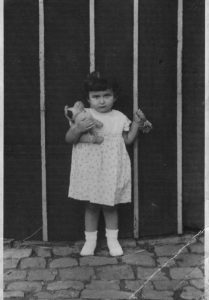

When the Nazis became more powerful non-Jews could no longer fraternize with Jews.
The Nazis created the Nuremberg Laws, which took away a lot of our rights. Young Jewish adults could not marry Christians. Jews could no longer go to public parks or state schools. Jews couldn’t work in education or government.
Then, of course, there was November 9th, 1938. That night was called Kristallnacht – the Night of Broken Glass. All over Germany, the Nazis arranged for Hitler Unions, members of the Brown Shirts (the young army guys) and punks and hooligans, to go into Jewish homes, Jewish businesses and Jewish synagogues to wreak havoc. They broke things. They took things. My mother, my father and I went to a little synagogue. They overturned the furniture. All the prayer books were thrown into the street. They tried to burn our books, but some were just charred. I know this because the next day my mother, my father and I went to our little synagogue, and I saw it. My parents were horrified.
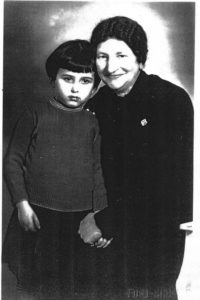

A week or two after that, there was a loud knock on the front door of our house, loud enough to wake us all up. There were two members of the SS standing there.
They ordered my father, “Joseph, get dressed. We’re taking you to a work camp.”
My mother shouted, “What are you talking about? What kind of work camp? What do you mean?”
She was frantic.
One of the men said, “We don’t know anything about it, but it’s called Buchenwald.”
At that time, at the end of 1938, I don’t think Buchenwald had the gas chambers for killing people. But Hitler was planning to have a big army with tanks and trucks, and those rural roads were pretty small. So at this time he had many people at the camp, including my father, work on making the roads larger. People were malnourished and literally worked to death.
Even though there was a lot of trauma during this time of my life and my parents’ lives, I want you to know I also witnessed a lot of courage and kindness.
After my father was taken to Buchenwald, my next-door neighbor knocked on our door the next morning and told my mother that he would take our cow to pasture and milk it for us. My mother was very grateful.
At night, after it was dark, we started getting little packages of food, usually sweets, on our front porch from neighbors. They never signed their names because they would get in trouble for fraternizing with Jews but they wanted to show us they cared.
There was another person who lived a couple of doors away named Anna. When it snowed, she used to take me for rides on her sled. I would sit on the sled in front of her. She’d put her arms around me and hold me. I just loved it. Then, she wasn’t allowed to go sledding with me anymore because she couldn’t fraternize with the Jews. So instead of sledding during the day, she would come to get me when the moon was out. We’d go for our sled ride in the dark when nobody would see us. If she had gotten caught with me, she could have been sent to a prison or a concentration camp. She risked her freedom to make me smile.
Even some of the Nazis showed kindness. That’s actually how we made it out. It’s how we made it to America.
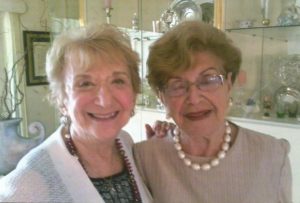

My mother sent a letter to her aunt, who lived in Chicago. She wasn’t even sure if she had the right address, so when we got a brown envelope from my aunt saying she was willing to support us coming to America, my mom was excited and happy.
Immediately, my mother made an appointment with the SS. That’s who ran the camps. We went to their headquarters by train and I still remember that interview with the commandant of the SS so vividly. I remember what the office looked like. It was a nice office with an oriental rug on the floor and a huge wooden desk. The commandant, who was a middle-aged man in a well appointed uniform, sat behind the desk.
My mother showed the him the letter from my aunt and said, “We can leave Germany if you will release my husband. We will leave as soon as possible.”
He read the letter. Then, he looked at me. I had with me a little rag doll that my mother made for me. He asked me my name.
Nervously I replied, “My name is Ruthie, and I’m five and a half. And my doll’s name is Heidi. She’s two.”
He told me he had a daughter the same age as me.
He sat quietly for a few minutes. Then he turned to my mother and said, “I will have your husband released.”
We left for America shortly after. That likely saved all of our lives.
While many people showed a lot of courage to simply be kind to Jews like me and my family, you must understand that it didn’t have to be this way. Hitler and the Nazis should never have been able to become so powerful.
It is so important that when and if you see injustice, you don’t sit back and do nothing. When you see a bully, it may not be smart to go after the bully yourself, but tell somebody. Take some action. I want you to be alert and involved citizens, and I want you to start now. From my bitter experiences in Germany, I know that democracy only works if citizens care about what’s going on and make informed choices.
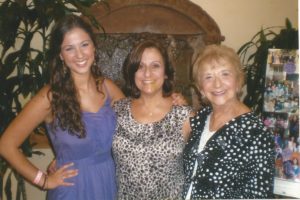

Fighting against injustice is not only best for others, but it’s best for you, too.
When I went back to Germany many years later, a social worker told us that his grandfather couldn’t get a job, so someone suggested he reach out to the Nazi party. They hired him to do construction. But later on, they wanted him to work at a concentration camp.
He said, “No, I won’t do that.”
They said, “OK, you don’t have to do it. But if you don’t work at the camp, we’ll take your wife and children to the camp.”
If you don’t stop evil when it starts, it may progress to a point where you have no choice but to be a part of evil or a victim of it.
I am not telling you about my past and our world’s history to scare you but to make sure you understand that even though Hitler is gone, it’s up to you to make sure another Hitler doesn’t rise to power again.
Always stand up for what is right,
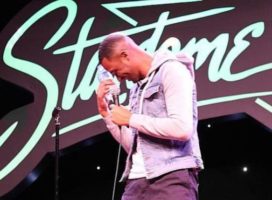


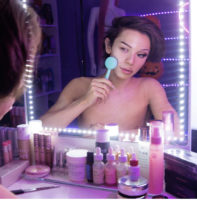
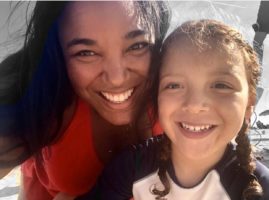
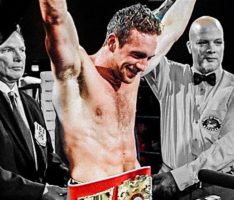
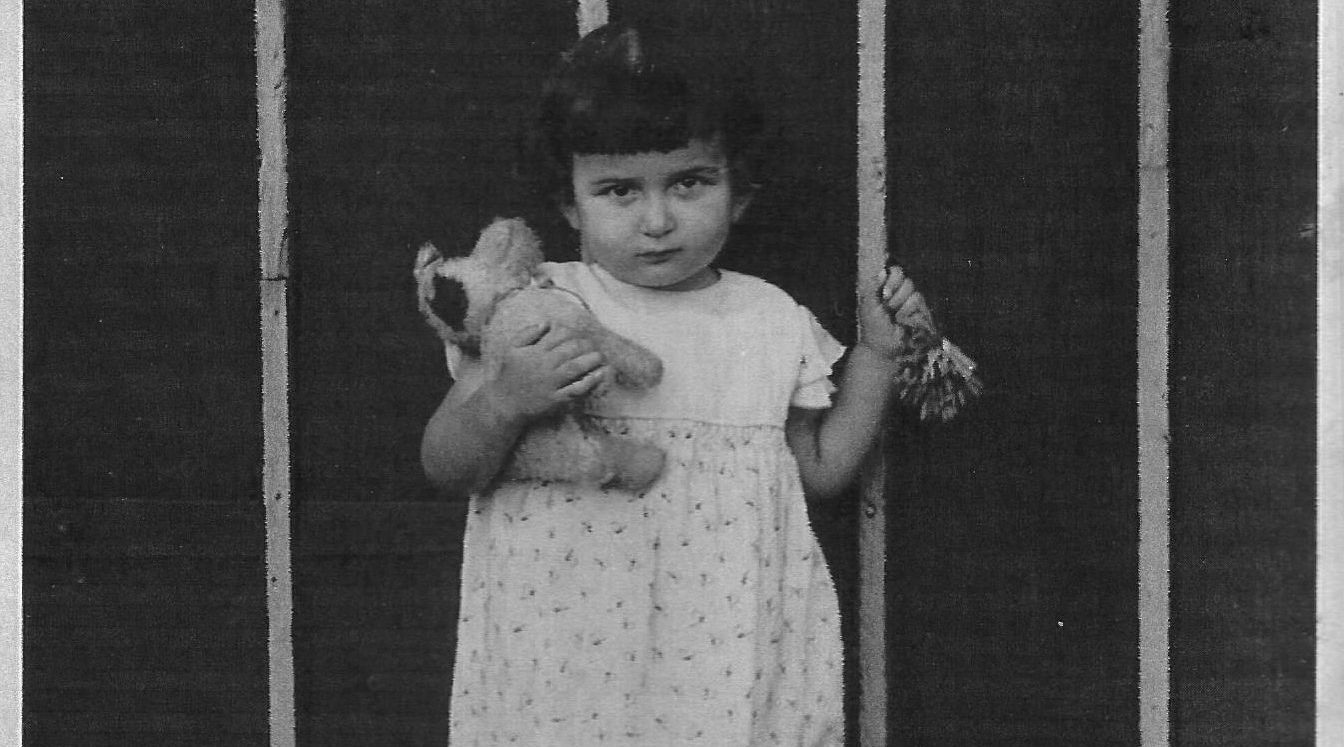

Ruth, your letter moved me to tears. Once upon a time I was very closed off about the LGBT community but over a course of several years, I turned my fear into understanding and I actively stand with the community for their equal rights because it is the right thing to do.